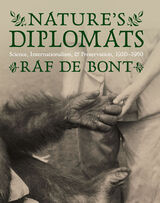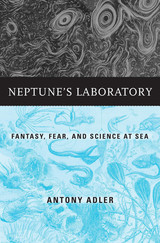4 start with N start with N

By examining international efforts to protect migratory birds, the threatened European bison, and the mountain gorilla in the interior of the Belgian Congo, Nature’s Diplomats sheds new light on the launch of major international organizations for nature protection in the aftermath of World War II. Additionally, it covers how the rise of ecological science, the advent of the Cold War, and looming decolonization forced a rethinking of approach and rhetoric; and how old ideas and practices lingered on. It provides much-needed historical context for present-day convictions about and approaches to the preservation of species and the conservation of natural resources, the involvement of local communities in conservation projects, the fate of extinct species and vanished habitats, and the management of global nature.

An eyewitness to profound change affecting marine environments on the Newfoundland coast, Antony Adler argues that the history of our relationship with the ocean lies as much in what we imagine as in what we discover.
We have long been fascinated with the oceans, seeking “to pierce the profundity” of their depths. In studying the history of marine science, we also learn about ourselves. Neptune’s Laboratory explores the ways in which scientists, politicians, and the public have invoked ocean environments in imagining the fate of humanity and of the planet—conjuring ideal-world fantasies alongside fears of our species’ weakness and ultimate demise.
Oceans gained new prominence in the public imagination in the early nineteenth century as scientists plumbed the depths and marine fisheries were industrialized. Concerns that fish stocks could be exhausted soon emerged. In Europe these fears gave rise to internationalist aspirations, as scientists sought to conduct research on an oceanwide scale and nations worked together to protect their fisheries. The internationalist program for marine research waned during World War I, only to be revived in the interwar period and again in the 1960s. During the Cold War, oceans were variously recast as battlefields, post-apocalyptic living spaces, and utopian frontiers.
The ocean today has become a site of continuous observation and experiment, as probes ride the ocean currents and autonomous and remotely operated vehicles peer into the abyss. Embracing our fears, fantasies, and scientific investigations, Antony Adler tells the story of our relationship with the seas.

The immediate subject of Riles's ethnographic work was a group of Fijian bureaucrats and activists preparing for and participating in the United Nations Fourth World Conference on Women. Participants in this meeting and the activities surrounding it understood themselves to be "focal points" in national, regional, and global "networks."
Starting from the premise that anthropologists are "inside" the Network, that is, that they are producers, consumers, and aesthetes, not simply observers, of the artifacts of late modern institutional life, Riles enacts a new ethnographic method for turning the network "inside out." The resulting experiment in the theory and ethnography of transnational institutional practices makes an important contribution to the anthropology of knowledge.
With its focus on developing a method for studying transnational phenomena, The Network Inside Out will appeal not only to anthropologists, but also to legal scholars and political scientists.
Annelise Riles is Assistant Professor, Northwestern University School of Law, Research Fellow, American Bar Foundation.

In a work of sweeping scope and luminous detail, Elizabeth Borgwardt describes how a cadre of World War II American planners inaugurated the ideas and institutions that underlie our modern international human rights regime.
Borgwardt finds the key in the 1941 Atlantic Charter and its Anglo-American vision of “war and peace aims.” In attempting to globalize what U.S. planners heralded as domestic New Deal ideas about security, the ideology of the Atlantic Charter—buttressed by FDR’s “Four Freedoms” and the legacies of World War I—redefined human rights and America’s vision for the world.
Three sets of international negotiations brought the Atlantic Charter blueprint to life—Bretton Woods, the United Nations, and the Nuremberg trials. These new institutions set up mechanisms to stabilize the international economy, promote collective security, and implement new thinking about international justice. The design of these institutions served as a concrete articulation of U.S. national interests, even as they emphasized the importance of working with allies to achieve common goals. The American architects of these charters were attempting to redefine the idea of security in the international sphere. To varying degrees, these institutions and the debates surrounding them set the foundations for the world we know today.
By analyzing the interaction of ideas, individuals, and institutions that transformed American foreign policy—and Americans’ view of themselves—Borgwardt illuminates the broader history of modern human rights, trade and the global economy, collective security, and international law. This book captures a lost vision of the American role in the world.
READERS
Browse our collection.
PUBLISHERS
See BiblioVault's publisher services.
STUDENT SERVICES
Files for college accessibility offices.
UChicago Accessibility Resources
home | accessibility | search | about | contact us
BiblioVault ® 2001 - 2024
The University of Chicago Press









